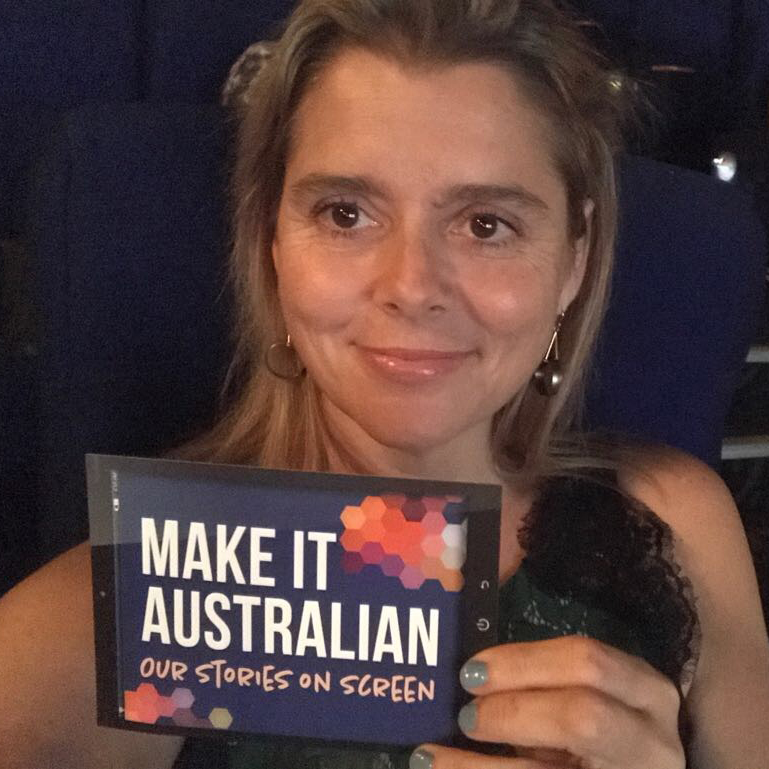Jacqueline Elaine.
Two weeks ago IF published an article, ‘CJZ addresses drama budgets, shortage of writers and original concepts’, in which CJZ claimed that high production and development costs and the lack of Australian writing talent were making it more and more difficult to create Australian drama.
“There are work practices which make it impossible to make drama at the price it should be made at,” CJZ managing director Nick Murray told IF.
CEO Matt Campbell went on to say that “it is the greatest struggle to find writers in this country at the moment as they get sucked up into the US and UK . . . Everyone is after the same people. We are having to look far and wide for writers.”
The Australian Writers’ Guild rejects these notions. While we acknowledge that there are challenges specific to creating high-quality drama, CJZ fails to identify the real ones.
There are widespread work practices which make it difficult to make drama of the quality that can, and should, be made in Australia. Gatekeepers who are risk averse, and focused on cost-cutting, micro-management and tightening their grip over the development process are at the top of the list. Australian producers need to support writers and give them the respect and creative freedom needed to deliver great work.
When the lowest common denominator is seen as less risky than taking a chance on a bold new idea, and a race to production fees is favoured over time and money spent in development, creativity is stifled, and quality is compromised. It is the impact of these decisions, rather than the amount of lunch money spent, that we should be focusing on.
CJZ claims there’s a talent drain to the US and UK, but Campbell doesn’t actually have to go far to find precisely what they claim they are looking for: the Guild’s own Pathways Showcase is a curated peer-reviewed platform for fresh ideas and talent, with over 100 unproduced projects from Australian writers on show. And Pathways Prime showcases Australia’s most experienced and acclaimed writing talent, writers with hundreds of hours of successful TV drama already produced.
There’s no short supply of writers who have a great deal of experience, but whose original ideas are not being picked up due to the cautionary practices mentioned above and an unwillingness by some in the industry to invest in development, or in anyone who didn’t just get picked up by an international producer.
The fact that some highly experienced Australian writers are eager to take on international opportunities is not because they are desperate to work offshore. Sometimes it’s the opposite. However, the opportunity to have your ideas, your work and your ability respected creatively, rewarded financially, and most important of all supported by an intelligent investment of time and money in the creative process – this is what drives quality writers. In practical terms, this means investing money and giving creative control.
It means support and enthusiasm, and relationships with broadcasters. It means taking on less experienced writers and supporting them. It means paying experienced writers something that reflects the value they create for producers and broadcasters.
It is internationally accepted that the centre of gravity in quality TV drama is with writers. As Chris Albrecht, former president of HBO, said of creating ground-breaking globally successful shows such as The Sopranos and The Wire: “You don’t try to figure out what the audience is going to watch. You try not to interfere in the creative process too much. And you put a little money against it. After a while, we proved that you could have both creative opportunity and big success, i.e, money.”
There is no shortage of original ideas and top-class writers in Australia. Only a shortage of willingness to develop them and their ideas properly. Cautious and cynical production and programming are increasingly the order of the day.
Australian producers who support, trust and invest in the development process of quality writers can easily attract quality writers.
Jacqueline Elaine is CEO of the Australian Writers’ Guild, the professional association for Australian screen and stage writers principally in film, television, theatre, radio and digital media, which has protected and promoted their creative and professional interests for more than 50 years.
Matt Campbell replies: “CJZ has spent millions of dollars over the years developing drama and we are proud of our track record for fostering new talent, using fresh Australian writers in our writers rooms and development phase. I think the article misses the point we were trying to make.
“At no point did we suggest writers were over paid, nor did we imply there aren’t writers out there. What we are saying is that platforms, be those streamers or traditional broadcaster, are very reluctant to put their millions of dollars at what they would call ‘risk’ in the hands of less experienced Australian writers.
“That is hard cold fact. For us drama projects begin and end with the quality of the scripts.”



